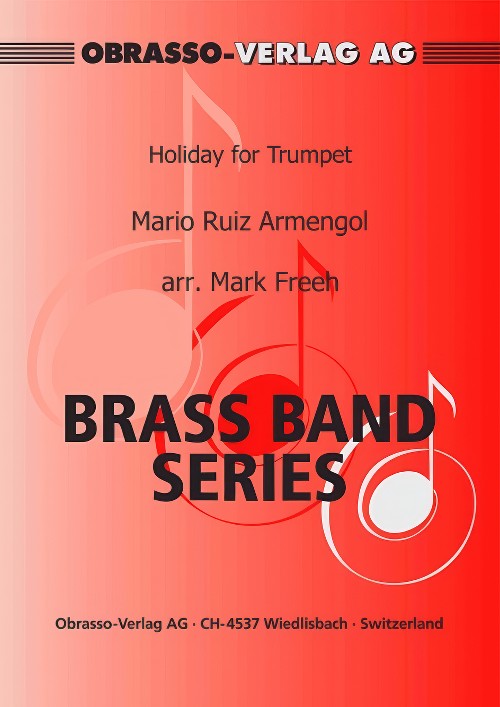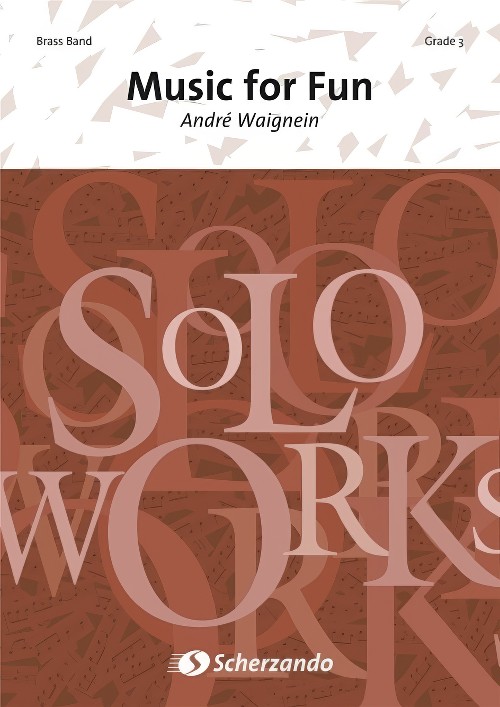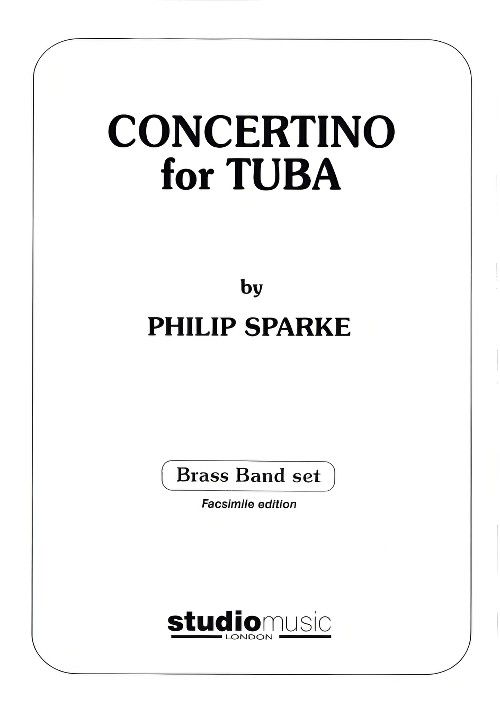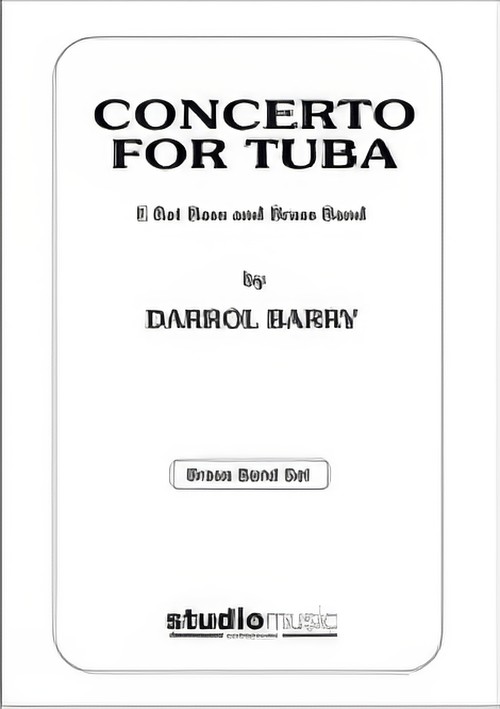Results
-
£66.30
Nightmare For Solo Trombone and Band - Derek Bourgeois
Estimated dispatch 5-14 working days
-
 £115.60
£115.60En bitte liten funklende stjerne - Numme - Øystein Sjøvaag Heimdal
This song written by Yngvar Numme and Benny Borg was made popular by Norwegian group Dizzie Tunes on one of their Christmas-albums. This arrangement is based on the Dizzie Tunes version and features the original solo for trumpet or cornet. The Drum Set part is optional so one can perform the arrangement without this part.
Estimated dispatch 5-14 working days
-
 £41.30
£41.30Lensky's Aria for Euphonium Solo and Band - Pyotr Ilyich Tchaikovsky - Erik Janssen
Estimated dispatch 5-14 working days
-
 £59.70
£59.70Holiday for Trumpet (Cornet Solo with Brass Band - Score and Parts) - Armengol, Mario Ruiz - Freeh, Mark
Your cornet player will love showing off their dexterity and tone in this upbeat number.
Estimated dispatch 7-14 working days
-
 £34.95
£34.95Rhapsody for Euphonium (Euphonium Solo with Brass Band - Score and Parts) - Sharman, Paul
Following a lively opening in which the band echoes statements by?the soloist, the central section features the melody 'He Leadeth Me'?before returning to the pyrotechnics of the first section.
Estimated dispatch 7-14 working days
-
 £17.50
£17.50Rhapsody for Euphonium (Euphonium Solo with Brass Band - Score only) - Sharman, Paul
Following a lively opening in which the band echoes statements by?the soloist, the central section features the melody 'He Leadeth Me'?before returning to the pyrotechnics of the first section.
Estimated dispatch 7-14 working days
-
 £76.99
£76.99Music for Fun (Cornet Solo with Brass Band - Score and Parts) - Waignein, Andre
Duration: 7.30
Estimated dispatch 7-14 working days
-
 £69.95
£69.95Concertino for Tuba (Eb Tuba Solo with Brass Band - Score and Parts) - Sparke, Philip
Composer's facsimile edition
Estimated dispatch 7-14 working days
-
 £42.95
£42.95BENEDICTUS (from The Armed Man (A Mass for Peace)) (Euphonium Solo with Brass Band) - Jenkins, Karl - Small, Tony
Recorded on Polyphonic QPRL224D Master Brass (Volume Seventeen)
Estimated dispatch 7-14 working days
-
 £82.95
£82.95CONCERTO FOR TUBA (Eb Bass Solo with Brass Band) - Barry, Darrol
Score and Parts. Dur: 15:30
Estimated dispatch 7-14 working days
